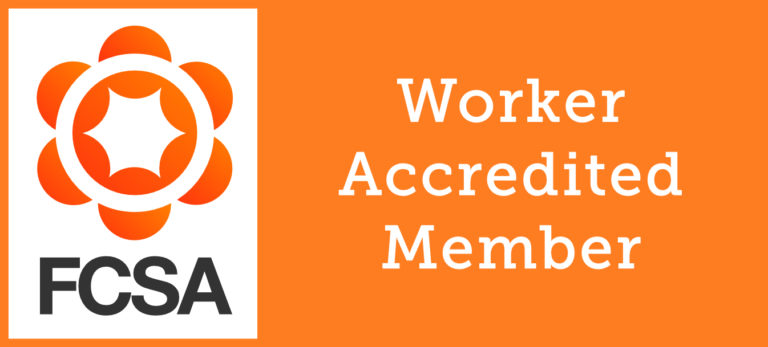The Covid-19 pandemic has acted as a catalyst for those unhappy or even merely content in their current jobs. 37% of people are willing to relocate globally for a new role, with work/life balance, travel opportunities and job satisfaction being the driving factors. For permanent and temporary job relocation, New Zealand has for the first time entered the Top 10 List of Preferred Countries in which to live and work.
Here Generate’s payroll and contractor management specialists reveal everything you most need to know when relocating to New Zealand.
4 Things to Know Before You Start a Contract Job in New Zealand
1. Finding a Job in New Zealand
Thanks to a combination of its island status, early action and numerous strategic initiatives from its government, the country is one of the world’s best examples of prosperity and safety throughout the coronavirus pandemic. Unlike most of Europe and North and South America, New Zealand did not experience huge waves of job losses, overwhelming illness and spiking mortality rates: as of June 2021, the total NZ Covid death toll remained under 30.
As a result, the nation’s economy is still going strong, meaning an abundance of career opportunities for skilled and savvy contractors. In the first quarter of 2021, New Zealand’s economic growth outperformed forecasts due to a boom in the housing market and rising consumer spending. Occupations listed on the country’s official Long Term Skills Shortage List include many positions ideally suited to the skill sets and lifestyles of contractors:
- Construction & Engineering – Civil, Chemical, Electronics, Network and Telecommunications Engineers
- Health & Social Care – Registered Nurses, Palliative Care Specialists, Physiotherapists and Lab Scientists
- IT & Technology – Animators, IT Project Managers, Systems Analysts, Software Engineers, Developers and Programmers.
The country is increasingly suffering from a shortage of qualified and experienced teachers, with the national shortage of secondary teaching staff expected to exceed 2,000 by 2025.
Just like many other countries, those seeking temporary or permanent work can apply for jobs through a recruitment agency or online job boards. The most popular job boards in New Zealand are:
2. Legal Applications – Working Visas
Although the country’s famously tough immigration laws are designed to reduce reliance on immigration and balance the nation’s economy, skilled specialists will be welcomed with many career opportunities.
For contractors looking for short-term or medium-term employment prospects, temporary visas will allow you to live and work in New Zealand for a set period of time. These visas are for people who work in a profession that is experiencing skill shortages or who have a job offer from a New Zealand employer. Most work visas do not have an age limit. Applications for employment listed in the Long Term Skills Shortage List are much more likely to be accepted.
If you decide to stay in the country for longer, contractors with temporary visas may be eligible to apply for residence in two years, provided you meet standard requirements and your annual earnings are at least NZ$45,000 (around £30,000).
3. Taxes
If you are in the country for fewer than three months, you will likely be exempt from all tax. Individuals living in New Zealand for more than 183 days in any one year-period are treated as a tax resident who must pay tax. Most of the country’s tax residents are liable for tax on their overall worldwide income, and most new arrivals will need to file their own tax return within their first year of living and working in the country, either electronically or via your tax agent.
Rates of tax are based on your total income for the tax year, which runs from 1st April to 31st March. This could include salary/pay/wages from both employment and self-employment, work and income benefits, scheduled payments, interest from investments, income from renting out a property and overseas income. The nation’s tax rates are progressive, and for the year beginning in 2021 are outlined as follows:
- Up to NZ$14,000 (around £7,000) – 10.5%
- Over NZ$14,000 and up to $48,000 – 17.5%
- Over NZ$48,000 and up to $70,000 – 30%
- Over NZ$70,000 and up to $180,000 – 33%
- Remaining income over NZ$180,000 – 39%
4. Reasons to Work in New Zealand
The Oceanic nation has a wealth of history, culture, activities and experiences for everyone across ages, backgrounds and interests to enjoy:
- Quality of Life – In 2020 New Zealand ranked seventh in the world for best countries to live and work. Factors behind the ranking include happiness levels, average salaries, cost of living, property price to income ratio, quality of healthcare and global peace level.
- Environment – With 10% more landmass than the UK and fewer than 10% of the population, New Zealand has plenty of space and opportunity to engage in the natural world. The country has two main islands and 700 smaller islands to explore, with a wealth of beaches and conservation forests to visit.
- Climate – In comparison to the wetter, colder and darker weather of the UK and Northern Europe, New Zealand is much warmer, drier and sunnier. Some cities and regions enjoy over two thousand hours of sunshine every year, with summer temperatures reaching from 33-45°C across the country. In the winter, the eastern and southern areas of the country’s South Island have regular snowfall, with snowy mountains sitting across both islands.
- Things to Do – Cultural and outdoor activities are in abundance. Visitors and residents can enjoy skiing, hiking and biking to more extreme sports such as river rafting and bungy jumping. Auckland’s famous vineyards offer wine tasting, and cultural experiences also include art studios, olive groves, music events and everything to expect from lively society. Māori culture and hospitality is best in Rotorua, the cultural heart of New Zealand, where adventurers can visit authentic pre-European Māori villages for a cultural show.
Find Contractor Support Services
Just about to start a new contract role or looking for more support? Find out how Generate’s payroll and contractor management specialists could help you. New Zealand not right for you? Read our Contractors’ Guide to Working in Sweden











